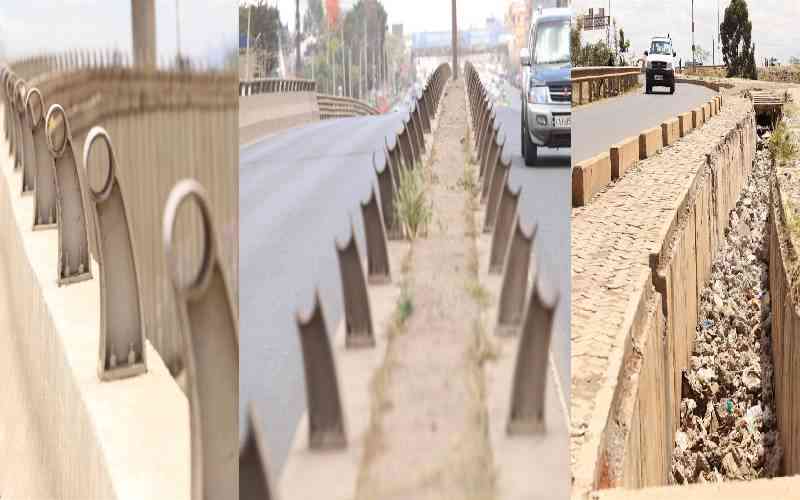
A wave of vandalism has hit the multi-billion Outer Ring Road in Nairobi as demand for scrap metals goes up.
Vandals damaging the new road are targeting the fittings including guard rails, barrier grills and street light posts hence compromising the safety of passengers, pedestrians and thousands of motorists plying the road every day. Being part of the Vision 2030 flagship projects, the Sh8.5 billion constructed under Kenya Urban Roads Authority was built to transform the Eastland areas economically and socially but the residents are complaining over vandalism on the roads threatening their safety.